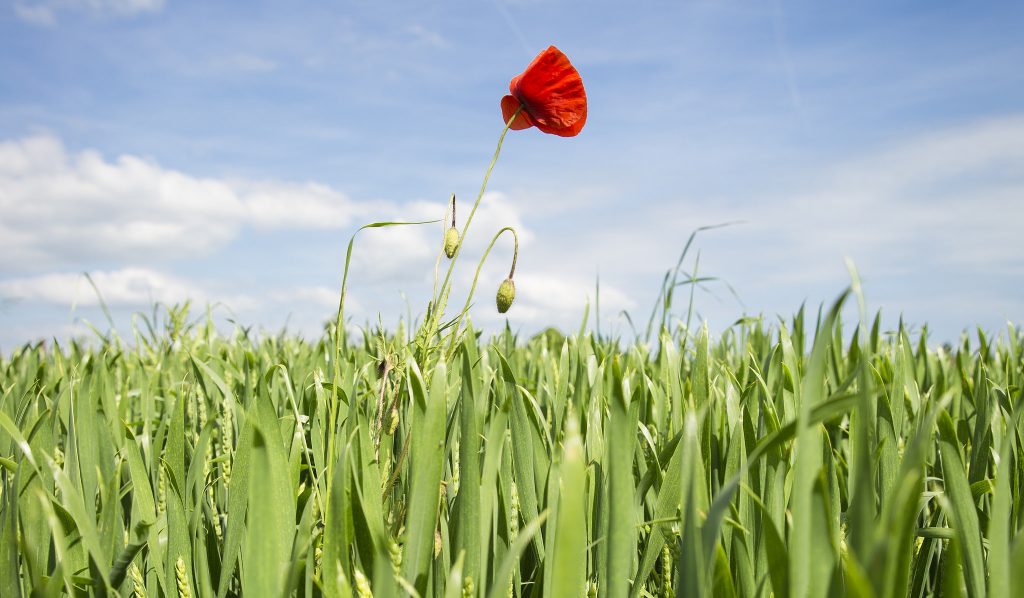Poppy powerless to resist new herbicide
11th May 2018
A new broad-leaved herbicide deigned to overcome the growing threat of resistant populations of poppy in UK cereal fields has been unveiled by Corteva Agriscience, the agriculture division of DowDuPont.
|
A new broad-leaved herbicide deigned to overcome the growing threat of resistant populations of poppy in UK cereal fields has been unveiled by Corteva Agriscience, the agriculture division of DowDuPont. Trezac contains the ground-breaking molecule Arylex Active (halauxifen-methyl) – proven to deliver robust control in cold and variable conditions – combined with aminopyralid from the widely-used oilseed rape herbicide Astrokerb. The new product can be used in winter and spring crops of wheat, durum wheat, spelt, barley, rye and triticale. It is suitable for crops grown for seed, milling and malting. Dr Alex Nichols, cereal herbicide category manager for Corteva Agriscience, said: “Poppy is a yield-robbing weed and one growers simply can’t afford to have in their crop. “Resistance has been growing across the UK, driven partly by the lack of new active ingredients with the ability to target the problem. “With Trezac, growers have a new broad-leaved herbicide specifically developed to overcome the threat. Based on two new active ingredients for cereal crops, it’s highly effective against poppy and other weeds.” Widespread use of acetolactate synthase inhibitors (ALS) has led to resistance developing and the lack of new actives with proven activity on poppy has exacerbated the problem for farmers. Cases are most prevalent in the eastern counties of England but not confined to the region and Dr Nichols expects the problem to continue to develop if left unchecked. “In 2016 Rothamsted Research found 16 counties in England where resistant populations of poppy had been discovered,” he said. “The issue has also been reported in more than 44 countries worldwide.” Trezac also controls a wide range of other yield-robbing broad-leaved weeds such as black bindweed, chickeed, cranesbill, cleavers, fumitory and fat hen. Trezac can not be used on cereal crops where the straw is intended for animal feed, fodder or bedding, nor for composting or mulching. It must only be used on cereal crops where the straw is to be incorporated back into the soil and will not leave the farm. Use in spring crops is between 1 March and 31 May (GS 13-32) and should be applied using a medium spray quality. A 5m reducible buffer zone should be in place, and the product is rainfast in 30 minutes. |

